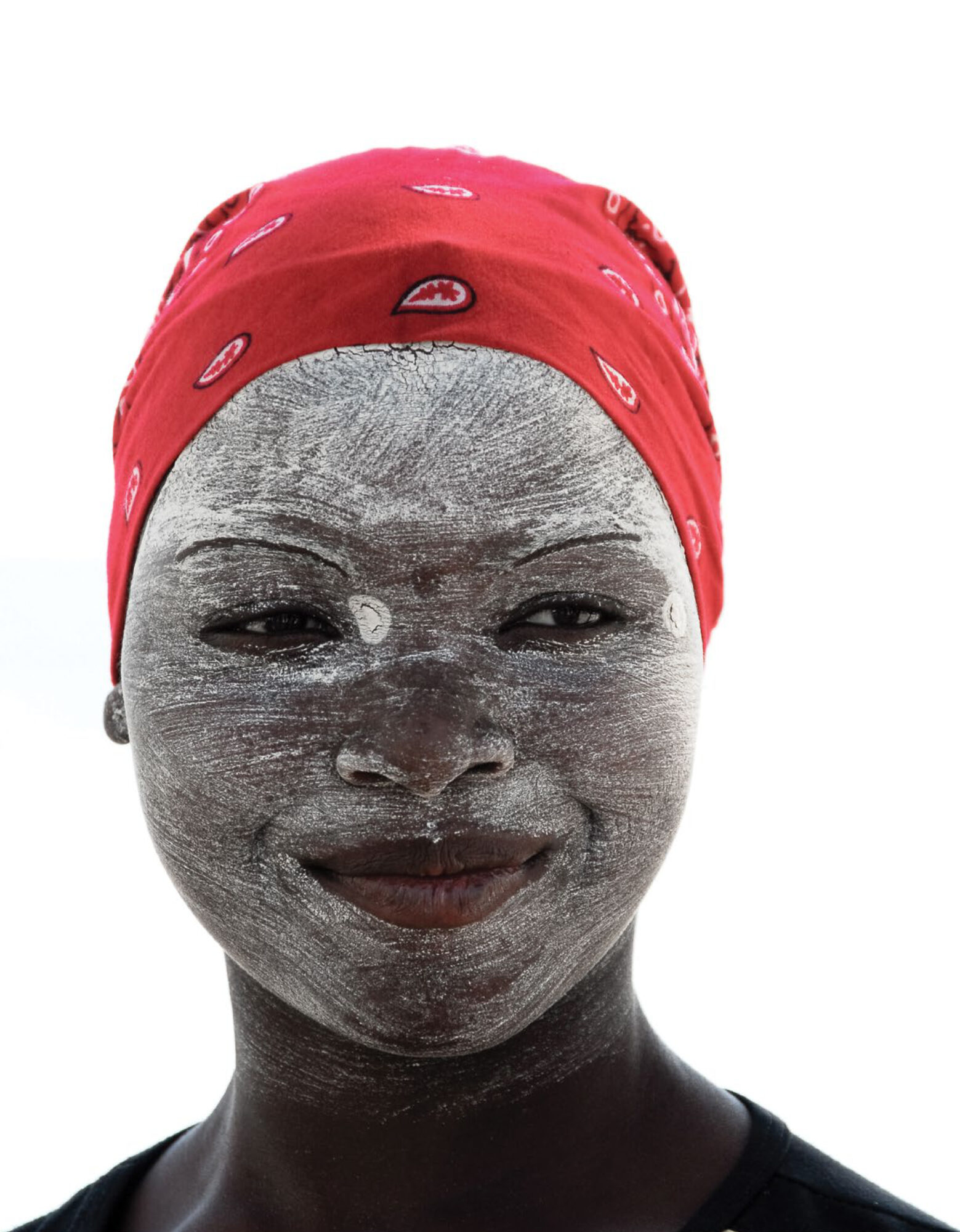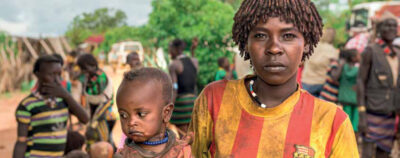Main content
Introduction
Mozambique gained its independence in 1975, more than a decade after the other countries in the region. A devastating civil war followed, which led to almost 1,000,000 casualties and 1,700,000 refugees. Especially the educational and health care infrastructure was demolished. By the time the Rome Peace Accords were signed in 1993 Mozambique was among the poorest countries in the world. Founding the Catholic University of Mozambique (UCM, 1996) in Beira was a direct result of the Peace Accords, mediated by the Catholic Church, with the objective to develop higher education in the Central and Northern region of the country. The Medical Faculty of the UCM started in 2000. Its first Medical Doctors graduated in 2007.
Mental health (services) in Mozambique
The local situation concerning mental health services can be compared to the situation in the East African region as described by Njenga. (1) The mental health care system can be broadly divided into three sectors: services found in primary care facilities, mental health hospital services and traditional healers.
In 2012 Mozambique had an estimated population of 25.2 million. (2) The total number of psychiatric beds per 100,000 inhabitants is 2.16 and the number of psychiatrists per 100,000 inhabitants is 0.04. In 2011 there were 0.28 psychiatry technicians per 100,000 inhabitants. (3) Many psychiatry technicians, as well as other health care professionals, have left government services to work with local or international NGOs.
In 2003 the Ministry of Health conducted a mental health community survey in which the prevalence of psychoses, mental retardation and epilepsy in the urban area was 1.6%, 1.3% and 1.6%, and in the rural area 4.4%, 1.9% and 4.0%, respectively. The majority of patients had frequented local traditional healers and a significant part of the patients attributed their mental disorder to a supernatural power. (4) Other epidemiological data on mental health in Mozambique is scarce. (5,6)
Teaching mental health in the UCM curriculum
Given the global burden on society caused by mental illness and the lack of mental health services available in many low-income countries, it is important to focus on mental health education and local human resource management in mental health. (3,7) The adoption of a Western curriculum in low-income settings has been questioned. (8) However, because of the shortage of local human resources and the lack of capacity to develop a new curriculum, that of the Medical School of Maastricht University (MU) was adopted. The MU medical curriculum uses the educational method Problem Based Learning (PBL). Therefore the faculty continues to reshape its curriculum as a whole and in mental health in particular to the specific context. With a community- and family health programme, in which the students work on community level following a group of families along the years, the medical school tries to fulfil this challenge. With a focus on public health and family medicine the faculty prioritizes preventive medicine and health promotion in the curriculum. The psychiatrist’s holistic approach of body and mind, the usefulness of skills learned in psychiatry for medicine in general, and the overall high prevalence of mental illness fit very well in this philosophy. (9) In this paper we will take a closer look at some of the aspects applied.
Mental health block
Mental health is taught in a 6 weeks’ pre-clinical block in the 3rd year. The block features self-directed learning using predefined cases about the various topics in mental health. Twice a week small groups of students meet to analyse the cases, identify where their knowledge is lacking, and report after appropriate self-study. A tutor accompanies and facilitates the learning process. Due to a lack of staff not all tutors are expert in mental health, a concern debated in recent literature. (10) Tutor meetings are the main source of knowledge growth. Besides, there are skills training on psychiatric history and mental state examination, visits to the central hospital psychiatry ward, as well as some supportive lectures. According to the guidelines in teaching a “core curriculum in psychiatry” the faculty fully implements a self-directed and problem based learning style. (9) There are no locally produced (visual) teaching aids available. Therefore we use a Western film to introduce the block and generate a general discussion afterwards. (11) The use of film has proven very useful and has been evaluated positively by the students over the years. (12) Some mental health topics are dealt with in other multi-disciplinary blocks in the 1st and 4th year of this study, like epilepsy and mental retardation. The students follow a clinical mental health rotation at the central hospital in their final years of training. The focus in the curriculum is on the most prevalent and salient disorders, namely psychosis, alcohol and drug related disorders and affective disorders. Alcohol abuse and dependence are specific major local problems. Organic mental disorders are also addressed in the curriculum due to the high prevalence of HIV, malaria and other infectious diseases.
Skills to be acquired
According to the PBL teaching model, the content of the theoretical knowledge will consist of tutorial groups, skills training, discussions as well as some lectures. Problems arise when training programmes precede the development of adequate clinical services where trainees can get experience. (8) The faculty has access to local hospital psychiatry services for training but they are of poor quality and may have a demotivating impact on students. Therefore psychiatry clinical skills are also embedded in local faculty primary care services (faculty clinic) and the community- and family health programme. Students should be able to recognize the most common mental disorders within a primary care context, as well as identify the most devastating problems, to further implement preventive measures. To develop such capacities, the setting supplied by skills and discussion groups appears to be the most convenient. All students visit a local traditional healer during the block and discuss afterwards about the role of traditional healing of mental illness. Another approach to be proposed might be to create a complete register of the data from the files in the psychiatry ward. Having data about: diagnosis, course of disease, age, gender, length of stay, suicide rates and methods, treatments, re-admissions etc, the student will develop a more complete overview of what mental health is in an inpatient setting, as well as becoming familiar with quality monitoring processes. Psychiatric symptoms and syndromes and their treatment are to be taught and learned in the context of an integrated biological, psychological and social approach. This is referred to as knowledge objective in the core psychiatry curriculum. Aspects included in attitude objectives can be divided into attitudes towards medical practice in general, towards the patient and family or towards psychiatry and psychiatric disease. Skills objectives in mental health have a great overlap with skills learned in other areas of medicine. (9) Table 1 is presented with a general overview of the skills objectives and the way in which these objectives are reached.
Assessment
Assessment should be done in the way in which the students are taught, or in other words, it should be congruent with the educational philosophy. As PBL focuses on skills, attitude and knowledge, this is reflected in the way assessment is organized. Progress Testing and Objective Structured Clinical Examination (OSCE) have been implemented. (13,14) Both exams can be seen as formative assessment methods and serve the student to receive immediate feedback about their skills performance and growth of knowledge over the years in the different areas including mental health.
The OSCE mainly focuses on skills and the Progress Test on long-term memory factual knowledge. The UCM “professional behaviour” programme focuses on attitude learning objectives. The programme is longitudinal during 6 years and involves the student’s evaluation of interest, active participation and preparation on different occasions by all teaching staff. The programme, although suffering from administrative constraints, is transparent and a good platform for feedback about the student’s behaviour and attitude. The faculty has in the past tried to implement the student’s portfolio as another formative assessment method to stimulate the student’s self reflection, but unfortunately due to a lack of human resources to implement the programme this has not proven sustainable. Summative assessment consists of the mental health block test directly after the 6 weeks of teaching in mental health.
One size fits all?
Teaching mental health implies an effort to adapt to the social and cultural context in which the process takes place; otherwise there is a great risk of Western bias. (8) But literature on global mental health has focused mainly on the lack of human and financial resources and the need of structural changes in local mental health care systems. The authors stress the need for understanding local practice, cooperation with local caregivers and the need for understanding concepts like ‘idioms of distress’ and ‘explanatory model’.
Emphasizing community- and family health competences the faculty continues to reshape its mental health curriculum to the local situation and culture, thereby creating tomorrow’s medical doctors with a warm interest in mental health in its primary health care local context.
| Objective | How is it reached |
|---|---|
| Doctor patient interpersonal skills | Communication skills programme year 1-4 Faculty clinic year 3 and 4 |
| Information gathering skills | Communication skills programme year 1-4 Faculty clinic year 3 and 4 Skills training mental state examination Skills training HIV/ AIDS counselling Community- and Family health programme |
| Information evaluation skills | Community- and Family health programme Faculty clinic year 3 and 4 PBL tutorial groups year 1-4 |
| Information giving skills | Community- and Family health programme Faculty clinic year 3 and 4 Clinical rotations year 5 and 6 |
| Reporting skills | Faculty clinic year 3 and 4 Clinical rotations year 5 and 6 |
| Treatment skills | Clinical rotation year 6 Faculty clinic year 3 and 4 |
| Learning skills | PBL tutorial groups year 1-4 |
| Teamwork skills | PBL tutorial groups year 1-4 Community- and Family health programme |
References
- Njenga F. Focus on psychiatry in East Africa. Br J Psychiatry. 2002 Oct;181:354-9.
- Worldbank. [May 12, 2014]; Available from: http://data.worldbank.org/country/mozambique.
- Mental Health Atlas – Mozambique. World Health Organization; 2011 [April 11, 2014]; Available from: World Bank http://www.who.int/mental_health/evidence/atlas/profiles/moz_mh_prpofile.pdf?ua=1.
- Patel V, Simbine A P, Soares I C, Weiss H A, Wheeler E. Prevalence of severe mental and neurological disorders in Mozambique: a population-based survey. Lancet. 2007 Sep 22;370 (9592):1055-60.
- Pires J, Padrao P, Damasceno A, Silva-Matos C, Lunet N. Impact of different reference period definitions in the quantification of alcohol consumption: results from a nationwide STEPS survey in Mozambique. Alcohol Alcohol. 2012 May-Jun;47(3):328-33.
- Igreja V, Dias-Lambranca B, Hershey D A, Racin L, Richters A, Reis R. The epidemiology of spirit possession in the aftermath of mass political violence in Mozambique. Soc Sci Med. 2010 Aug;71(3):592-9.
- Lopez A D, Murray C C. The global burden of disease, 1990-2020. Nat Med. 1998 Nov;4(11):1241-3.
- Metcalfe D. ‘Cultural imperialism’: a danger? Med Educ. 1996 Jan;30(1):3.
- Walton H, Gelder M. Core curriculum in psychiatry for medical students. Med Educ. 1999 Mar;33(3):204-11.
- Hay P J, Katsikitis M. The ‘expert’ in problem-based and case-based learning: necessary or not? Medical Education. 2001;35(1):22-6.
- A beautiful mind. Universal studios entertainment. 2001.
- Bhagar H A. Should cinema be used for medical student education in psychiatry? Med Educ. 2005 Sep;39(9):972-3.
- Aarts R, Steidel K, Manuel B A, Driessen E W. Progress testing in resource-poor countries: a case from Mozambique. Med Teach. 2010;32(6):461-3.
- Hodges B D, Hollenberg E, McNaughton N, Hanson M D, Regehr G. The Psychiatry OSCE: a 20-year retrospective. Acad Psychiatry. 2014 Feb;38(1):26-34.


















































